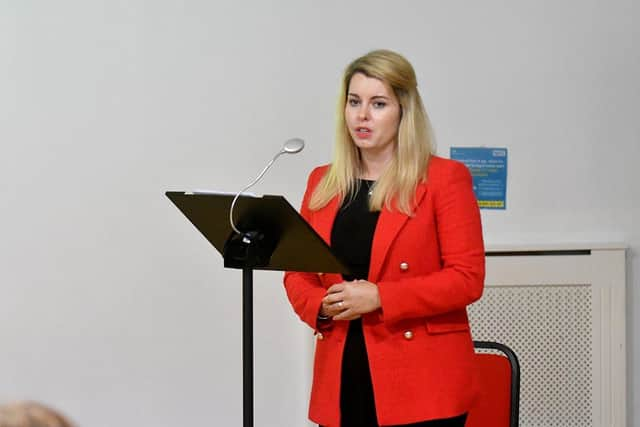New way Newcastle schools will fight knife crime after Tomasz Oleszak and Gordon Gault tragedies
and live on Freeview channel 276
Eight secondary schools across Newcastle will appoint student champions to help fight knife crime in the region after two 14-year-old boys on Tyneside lost their lives to youth violence in recent months.
Police Commissioner Kim McGuinness has secured funding for a new Violence Reduction United initiative that will work to reduce incidents in the area, motivated by the recent tragedies of Tomasz Oleszak and Gordon Gault.
Advertisement
Hide AdAdvertisement
Hide AdBoth 14-year-old boys died after sustaining stab wounds, Tomasz in Gateshead and Gordon in Elswick, in alleged attacks. The deaths left communities shaken and desperate calls to help remove knives from the streets.
As well as working with young people, including those believed to be at risk or involved in violent crime, the student champions will work closely with schools, police, council and community services, to prevent crime from happening.
The champions will be working with individuals and small groups, with the focus of the new roles being on building trusted relationships to encourage young people to seek support. Young people will also take part in educational sessions covering the dangers of knife crime, how to keep themselves safe, and the consequences of violent crime.
The project aims to improve school attendance and behaviour, reduce suspensions and exclusions, strengthen community links and prevent serious youth violence.
Advertisement
Hide AdAdvertisement
Hide AdNorthumbria Police and Crime Commissioner, Kim McGuinness said: “Education is a key component in our fight against crime, that’s why it’s so important to engage young people at the earliest opportunity. The Violence Reduction Unit is committed to stopping the cycle of criminality and already has a dedicated team delivering vital awareness sessions to schools and community groups all year round, but this new project will take it a step further by giving young people access to a trusted adult in their own school, on a regular basis.


“The team will be able to identify young people in need of support, work with them to understand their needs and refer them to services and interventions to provide help for them and their families. By giving young people access to information, support and opportunities, we can improve their lives, enable them to have positive aspirations for the future and divert them from a life of crime.”
